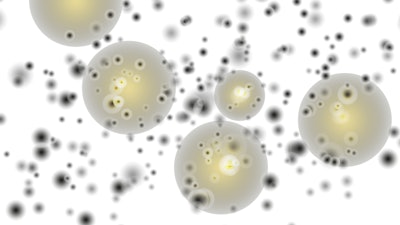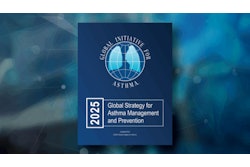
The fungal spore allergy season in the United States is starting significantly earlier and becoming more severe — a fact that scientists attribute to climate change. Earlier and longer allergy seasons could leave both patients and health care providers unprepared and result in increased respiratory issues and hospital visits.
The findings from the new study, “Fungal Spore Season Advanced Across the U.S. Over Two Decades of Climate Change,” raise concerns for both ecosystem health and public safety, particularly for the millions of Americans affected by mold-related allergies and asthma. The study was published in the American Geophysical Union journal, GeoHealth.
University of Michigan researchers in Ann Arbor analyzed two decades of airborne fungal spore data (2003–2022) from 55 monitoring stations across the continental United States, using records from the National Allergy Bureau. The study, one of the most comprehensive of its kind, found that fungal spore season now begins 11 to 22 days earlier than it did in 2003, depending on whether the analysis focused on ecological patterns or public health thresholds.
Fungal spores are microscopic reproductive units released by fungi. They are essential to ecosystems, playing roles in decomposition and nutrient cycling. Though these potent airborne allergens are often overlooked for their impact on public health and ecology, researchers said fungal spores remain sensitive indicators of environmental change and deserve more attention in health and ecological planning. Exposure can trigger asthma attacks and allergic reactions, particularly in children and vulnerable populations.
The study found that the start of allergy season advanced by approximately 22 days, while the ecological spore season began 11 days earlier on average. However, the overall intensity of spore seasons declined, with lower peak concentrations and reduced total spore counts during allergy seasons.
Researchers linked these shifts to climate change, particularly rising temperatures and altered precipitation patterns. Warmer temperatures were associated with earlier spore season starts and longer durations, while increased rainfall had mixed effects — sometimes delaying ecological spore seasons but extending allergy seasons and increasing spore concentrations.
The study’s findings have implications for both public health and ecology, researchers noted. For example, earlier and longer allergy seasons could catch patients and health care providers off guard, leading to increased respiratory issues and hospital visits.
For the ecosystem, shifts in fungal spore timing may disrupt plant-fungal interactions, decomposition cycles and food webs, potentially altering biome dynamics.
Researchers said these results support the need for updated allergy forecasts, expanded fungal monitoring networks and greater public awareness of mold-related health risks. They also encouraged further research into species-specific fungal responses, improved allergen thresholds and integration of fungal data into climate adaptation strategies.























